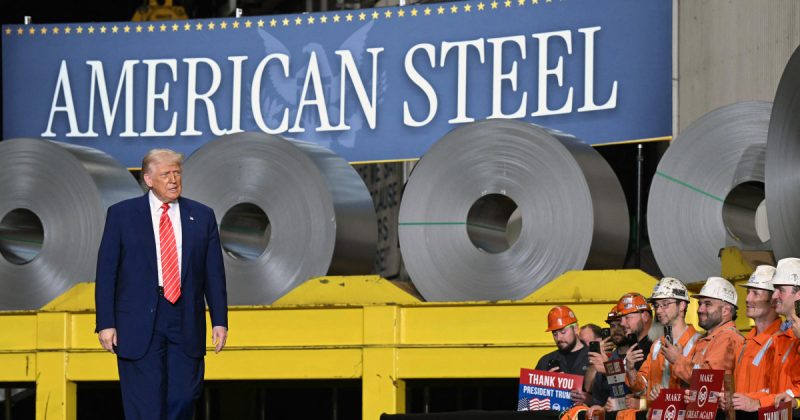
President Donald Trump announced a significant escalation in trade policy on Friday, declaring his intention to double tariffs on imported steel. Speaking directly to steelworkers at U.S. Steel’s Irvin Works in West Mifflin, Pennsylvania, Trump stated that the tariffs would increase from 25% to a hefty 50%. This dramatic move comes on the heels of his approval of a controversial merger between U.S. Steel and Japan’s Nippon Steel. The deal, initially blocked by the Biden administration on national security grounds, has been recast by Trump as a “partnership,” raising questions about its structure and potential implications for American jobs and steel production.
Trump’s visit to U.S. Steel served as a platform to address both the tariff hike and the recently approved merger. While the president described the deal as a partnership with U.S. Steel retaining control, details remain scarce. Reports suggest Nippon Steel will acquire U.S. Steel at $55 per share, the original offer rejected by President Biden. However, the exact nature of the “partnership” and the level of Nippon Steel’s influence remain shrouded in secrecy, despite assurances from Trump and his trade advisor, Peter Navarro, that U.S. Steel will retain ownership and control.
The deal’s structure is expected to involve a “golden share” for the U.S. government, granting veto power over key decisions, according to Senator Dave McCormick. This measure aims to safeguard American interests and prevent any detrimental impact on domestic steel production. However, legal experts clarify that this “golden share” will likely be a contractual right, rather than an equity stake, giving the government influence without direct ownership. The United Steelworkers union, while initially opposed to the merger, is awaiting further clarification before assessing the impact of Trump’s announcement, expressing ongoing concerns about the potential erosion of domestic steelmaking capacity.
Trump’s decision to double steel tariffs adds another layer of complexity to the already contentious situation. While proponents argue the move will bolster the domestic steel industry and protect American jobs, critics foresee potential negative consequences for consumers and international trade relations. The long-term effects of this policy shift on the American economy and the global steel market remain to be seen, further highlighting the uncertainty surrounding the U.S. Steel-Nippon Steel partnership and the broader implications of Trump’s trade policies.










